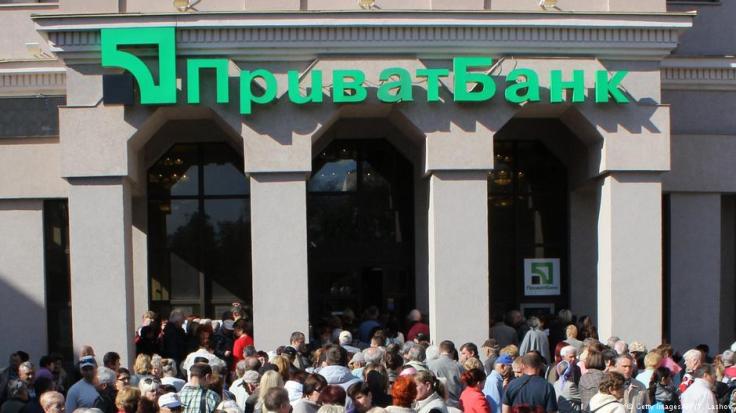Ukraine nationalizes its largest bank, PrivatBank

Ukraine has nationalized its largest bank, PrivatBank, to prevent a potential financial meltdown in the eastern European country.
The Ukrainian government said in a statement Sunday it was now the "100 percent owner of PrivatBank and guarantees the uninterrupted functioning of this institution and the safety of its clients' money."
Local media reports say the bank gave loans to insiders that might never be repaid. PrivatBank's bonds have fallen by almost 50 percent since the reports surfaced in November. The bank controls one third of Ukraine's deposits and also has branches in Baltic countries.
Former owner Igor Kolomoyskiy is a billionaire who was an early target of Ukrainian President Petro Poroshenko's fight against corruption. Dragon Capital economist Sergiy Fursa said "80 to 90 percent of PrivatBank's loans were to institutions" controlled by Kolomoyskiy.
"This was insider lending - in other words, money was withdrawn by its owners from the bank," said Fursa.
Closure would lead to 'panic'
Oleksandr Savchenko, head of Kyiv's International Institute of Business, told the "Kyiv Post" that the country's banking system would not survive if PrivatBank were to close.
"Other banks would not be getting their loans back from PrivatBank, a series of bankruptcies would begin, and there would be panic," Savchenko told the English-language weekly.
The bank said the nationalization was a consequence of "media attacks" by political insiders who opposed Kolomoyskiy. The bank's director of IT wrote on his personal Facebook page that "the decision to voluntarily and peacefully hand over the bank to the government was taken at the very moment that we understood that these media attacks - which we could survive - could endanger our clients." He also called the decision "unexpected news."
PrivatBank deputy CEO Oleg Gorokhovskiy said the most important thing was that Ukrainians' money was still safe.
"The bank will continue working, just as it did before," said Gorokhovskiy.
Kolomoyskiy did not offer an immediate comment.
dw.com
